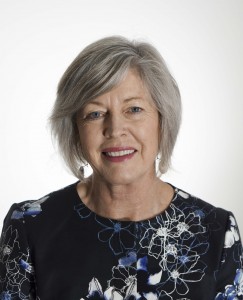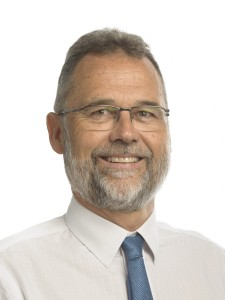Conference speakers
The National Conference Committee for the 39th AACBT National Conference is pleased to announce the following keynote & invited speakers for 2018, and they look forward to seeing you.

Keynote Speaker
University of California
Developing transdiagnostic psychological treatments for better practice
Mental illness remains common, chronic and difficult to treat. This talk will address approaches to hastening progress including (1) the use of science to derive treatments and (2) targeting treatment at a transdiagnostic process.
Learning objectives:
- To describe approaches to deriving new psychological treatments
- To describe advantages and examples of transdiagnostic approaches
Keynote Speaker
Boston University

Emotion regulation strategies
Emotions are critical aspects of mental health. Although conventional treatments for emotional disorders are generally effective interventions, many people still suffer from residual emotional distress, such as anxiety, depression, and anger problems. Moreover, contemporary treatments that have focused primarily on negative affect rarely leads to lasting improvements in positive affect, quality of life, and happiness. Recent scientific evidence and theoretical models of emotions can enrich the therapeutic strategies when treating emotional disorders. These strategies range from adaptive and flexible intrapersonal and interpersonal emotion regulation strategies to various mindfulness-based practices. In the case of anxiety disorders, modern emotion theories clarify the mechanism of exposure procedures and the role of avoidance strategies. These insights can inform the treatment for emotional disorders.
Invited Speaker
Griffith University

Using new technologies with youth emotional disorders
It has been an exciting decade for the synergy of cognitive behaviour therapy and technology in the treatment of youth psychological disorders. Research conducted on computer-based CBT (cCBT), including mobile devices, has expanded exponentially in recent years, with significant evidence demonstrating that cCBT, with relatively brief therapist support is effective for reducing youth anxiety and depression. The potential for cCBT to improve treatment access and the mental health outcomes of Australian youth is enormous given our nation’s vast rural and remote areas.
This paper will summarize the current status of research relating to the effectiveness of cCBT for youth anxiety and depression, and draw upon the presenter’s longstanding research on the BRAVE-ONLINE program. The considerable challenges that we face in moving from well-controlled cCBT clinical trials into implementation in real-world, clinical contexts will also be discussed. How can we best enable clinicians to use cCBT in their clinical practice? How do we enhance child and parent engagement and completion rates, particularly for self-help cCBT in the absence of therapist support? How do we fund cCBT when current government funding mechanisms present a barriers to the widespread adoption of cCBT for youth?
This paper will also discuss on ongoing challenges faced by cCBT program developers and clinicians who need to keep up advances in technology. Finally, the paper will note some of the emerging and interesting research into the next wave of new technologies, such as virtual reality, for the treatment of youth emotional disorders.
Disclosure: The presenter acknowledges that, although the intellectual property for BRAVE-ONLINE is owned by Uniquest/University of Queensland, she could potentially benefit from royalties related to the program.
Invited Speaker
University of Newcastle

Transdiagnostic treatment opportunities in addressing co-existing mental ill-health and substance use problems
Over the last 20 years, with the benefit of large epidemiological data sets, it has become clear that many people in the community experience mental ill-health and substance use problems in their lifetime and, quite often, experience these problems concurrently. It is becoming increasingly clear that these problems are also accompanied by poor levels of physical health. There is a life expectancy gap of around 20 years between people living with severe mental health and substance use problems versus those not experiencing such problems. The first National Mental Health Report Card in Australia in 2012 called the physical health status of people living with a severe mental health condition a ‘national disgrace’. The report card called upon researchers and clinicians to better address the physical health of people with mental health problems. In this paper I will: outline how substance use undermines mental and physical health; describe effective treatments for substance use and associated mental and physical health outcomes; and discuss the evidence for integrated versus single-focused approaches. The potential to place substance use and mental and physical health within a ‘healthy lifestyles’ framework offers transdiagnostic treatment opportunities which are appealing to clients with growing evidence for effectiveness.
Invited Speaker – Master Clinician Session
University of Queensland

For the children: Working with high conflict separated parents
About 1 million (1 in 5) Australian children experience their parents separate. Forty percent of separated parents do not reach mutually acceptable co-parenting arrangements. High conflict between separated co-parents is associated with child and adult adjustment, and can be a major barrier to providing children with a safe and nurturing home. In this presentation I will speak to the predictors of high conflict separations, and key issues in assisting separated parents with high conflict. I also will describe and demonstrate work we have been doing on assessment with feedback to promote parental positive goal setting, enhancing family mediation, and co-parenting education to assist high conflict parents.
Invited Speaker – Master Clinician Session
Greater Manchester CBT Training Centre (NHS)
Developing an internal compassionate supervisor
Self-compassion is associated with reduced depression, anxiety, self-criticism and shame whilst also being linked to increased self-evaluative accuracy, cognitive flexibility, creativity, capacity to tolerate ambivalent feedback and responsibility-taking for moral transgression. Such findings have important implications for mental health professionals and have inspired adaptations of compassion-focused exercises for therapist self-care and development.
At the end of this session, participants will be able to:
- Describe the reasons therapists would benefit from integrating compassion-focused therapy (CFT) exercises into their own practice.
- Explain the implications of compassion research for your therapy and self-care.
- Identify your threats as a therapist including triggers, protective strategies, and unintended consequences.
- Apply soothing-rhythm breathing to prepare your mind and body for self-compassion work.
- Utilize mental imagery practices specifically adapted to develop therapist self-compassion. This will involve you developing your own ‘internal’ compassionate supervisor, an exercise researched by the instructor
- Explain the benefit of using the self-practice, self-reflection model to support your well-being, develop therapeutic skills and increase empathy with clients
Invited Speaker – Master Clinician Session
Gallipoli Medical Research Foundation

Treating PTSD among veterans in the context of military culture and the adjustment to civilian life post service
The period of transition from military service and the subsequent reintegration to civilian life is gaining more recognition as an integral component of the long-term health and well being of the veteran population. The Department of Veterans’ Affairs (DVA) Transition and Wellbeing Research study (2018) demonstrated that a concerning 46.4% of ADF members who had transitioned from full-time service in the past five years met 12-month diagnostic criteria for a psychological disorder. Anxiety disorders were the most prevalent type of disorder among Transitioned ADF with over one in three experiencing an anxiety disorder in the previous 12 months – with Posttraumatic Stress Disorder (PTSD) being the most common of these. Further, over half of the Transitioned ADF members had a comorbid mental health condition. Examinations of pathways to mental health care found that while initial engagement and uptake of services for this group is high, limited numbers of veterans received evidence-based psychological treatment, and there were reportedly high levels of dissatisfaction with service providers, which may in part be due to limited training and understand of military culture.
Overview:
In order to prevent dropout and effectively treat PTSD among military service veterans, a comprehensive understanding of military culture and the adjustment to civilian life post service is vital in conjunction with specialized training in trauma-focused interventions. This brief masterclass will provide an introduction to the cultural reintegration and psychological adjustment factors important in the clinical treatment of veterans, as well as factors that complicate PTSD intervention planning.
Learning objectives:
- Understanding the unique factors and co-morbidities associated with PTSD among military service veterans.
- Understanding cultural reintegration and psychological adjustment to civilian life following military service.
- Identifying clinical treatment targets and sequencing treatment in clients with military related PTSD and mental health comorbidities.
- Increased knowledge of first-line psychological treatments for PTSD recognised by the Australian government and funded by DVA.
- Increased knowledge of Ex-Service Organisations (ESO) and services available as an adjunct to clinical treatment.
Invited Speaker
University of Technology Sydney

The dread of death: updating the status of a transdiagnostic construct
The dread of death has appeared throughout recorded human history in the form of art, literature, song, myth and cultural rituals. Indeed, the awareness of our own mortality was famously described by William James as “the worm at the core” of our existence.
The lingering tension of anticipated death appears to pervade various religious practices, such as the meditative handling of skull-shaped bracelets in Tibetan Buddhism, the decoration of graves associated with Dia de Muertos (ie. the day of the dead) in Mexico, or the wearing of a crucifix in various Christian denominations. Further, Terror Management Theory proposes that much broader cultural practices (eg. following a sporting team, seeking academic achievement, attaining wealth, extending the self through family), may serve as defensive mechanisms in the face of the terror of death. Considerable experimental research supports the claim that adherence to cultural worldviews may serve to buffer against death fears. In sum, an apprehension or angst about death and immortality appears to be a pervasive aspect of human experience.
This invited address reviews the dread of death from a broad range of perspectives covering philosophy, art, history, and social, developmental and clinical psychology. Recent research suggesting that death anxiety may underpin many psychiatric disorders will be examined.
Finally, a review of treatment approaches to death anxiety will be explored.

